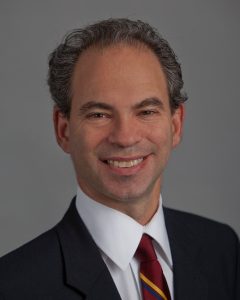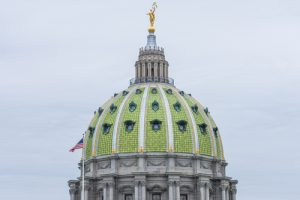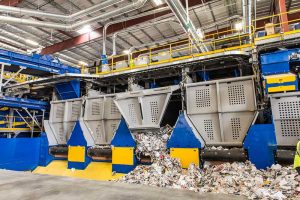
David Biderman, SWANA executive director
In a recent interview, SWANA leader David Biderman said communities don’t want to undo decades of outreach work and tell residents to stop putting certain items in the bin, even if China’s scrap policies are shaking up market realities.


 Municipal programs in the Pacific Northwest continue to feel the impacts of China’s import restrictions, and multiple local programs are halting acceptance of certain materials in response.
Municipal programs in the Pacific Northwest continue to feel the impacts of China’s import restrictions, and multiple local programs are halting acceptance of certain materials in response. Site stability uncertainties are complicating a MRF construction project in Charleston County, S.C.
Site stability uncertainties are complicating a MRF construction project in Charleston County, S.C. A movie studio that paid $1,500 to purchase a chair will often want it gone as soon as the shoot is finished. The L.A. Shares program in America’s second-largest city works to ensure the chair is donated instead of sent into the waste stream.
A movie studio that paid $1,500 to purchase a chair will often want it gone as soon as the shoot is finished. The L.A. Shares program in America’s second-largest city works to ensure the chair is donated instead of sent into the waste stream. The upstream impacts of China’s import restrictions have been increasingly covered in national and local press, raising the level of public consciousness about where recyclables ultimately end up and how that could all change.
The upstream impacts of China’s import restrictions have been increasingly covered in national and local press, raising the level of public consciousness about where recyclables ultimately end up and how that could all change. MRF company ReCommunity and Ann Arbor, Mich. have agreed to settle their legal dispute without an award of money to either party.
MRF company ReCommunity and Ann Arbor, Mich. have agreed to settle their legal dispute without an award of money to either party. State recycling money is on the chopping block in Pennsylvania, the latest arena in which legislators look to draw from recycling support funds as a way to balance the state budget.
State recycling money is on the chopping block in Pennsylvania, the latest arena in which legislators look to draw from recycling support funds as a way to balance the state budget. The Massachusetts Institute of Technology found that 40 percent of municipalities included in a research set have programs aimed at diversion of food material. And those cities are not all in regions considered hotbeds of environmentalism.
The Massachusetts Institute of Technology found that 40 percent of municipalities included in a research set have programs aimed at diversion of food material. And those cities are not all in regions considered hotbeds of environmentalism.
 Republic Services has purchased recycling processor ReCommunity, a move that’s in line with Republic’s recently stated goal of adding more recycling capacity in the coming year.
Republic Services has purchased recycling processor ReCommunity, a move that’s in line with Republic’s recently stated goal of adding more recycling capacity in the coming year.